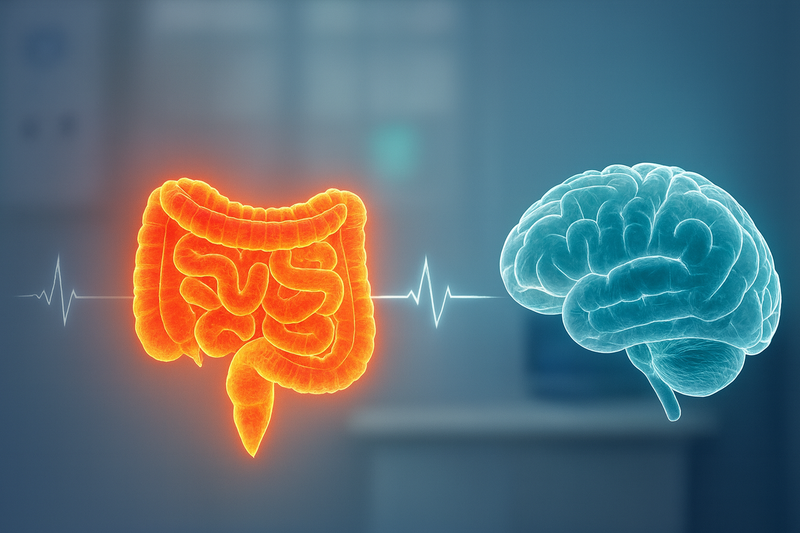The conversation around health is changing — and it starts in the gut. Once dismissed as “alternative,” the connection between the gut and the brain is now one of the most dynamic frontiers in medicine, reshaping how we understand mood, memory, immunity, and even chronic disease.
At Living Well Today, Michael Payne, MS, CRC, CNS, brings over 25 years of clinical insight to this evolving science. Through his pioneering work in the gut–brain axis, he’s helping clients and practitioners alike decode the body’s most intelligent feedback loop — where chemistry meets consciousness, and healing begins from within.

The Gut–Brain Connection: Where Science Meets Intuition
The gut–brain axis represents one of the most sophisticated communication networks in the human body — a two-way conversation between the central nervous system and the enteric nervous system, mediated by neural, hormonal, and immune pathways.
What was once a fringe theory has now become a cornerstone of modern integrative science. Studies published in Nature, JAMA, and Gut have revealed how gut microbiota influence neurotransmitter synthesis, inflammatory signaling, and emotional regulation. This dynamic interaction affects not only digestion but also mood, cognition, and metabolic balance.
At the heart of this relationship lies the vagus nerve, a vast neural superhighway that connects gut function with emotional state. Through it, microbial activity can alter serotonin and dopamine production, shift immune responses, and even influence patterns of anxiety, motivation, and resilience.
Why It Matters in Functional Medicine
Michael Payne’s clinical work at Living Well Today integrates this understanding into targeted, noninvasive wellness screenings and personalized treatment protocols.
By leveraging Zyto biofeedback technology, his assessments go beyond traditional diagnostics — measuring subtle energetic responses that reflect real-time communication between the body’s systems. This allows for tailored interventions that support gut-brain alignment, reduce inflammation, and promote optimal neurotransmitter balance.
His methodology bridges biochemistry, biofeedback, and behavioral medicine — helping clients with autoimmune conditions, chronic stress, neurodegenerative disorders, and post-illness recovery to reclaim clarity, focus, and vitality.
“The gut–brain axis isn’t just a biological pathway — it’s the body’s internal dialogue, constantly reshaping our mood, motivation, and sense of wellness.”— Michael Payne, MS, CRC, CNS
Beyond the Gut: The Future of Integrative Healing
As research advances, the gut–brain axis continues to redefine how practitioners view disease and recovery. It’s not just about the absence of illness — it’s about the restoration of communication within the body’s systems.
Michael’s ongoing mission is to empower both patients and peers to see the gut not as an isolated organ, but as a central player in whole-body healing. His work invites practitioners to rethink how they assess, interpret, and intervene in chronic conditions, using functional data and intuitive insight in tandem.

